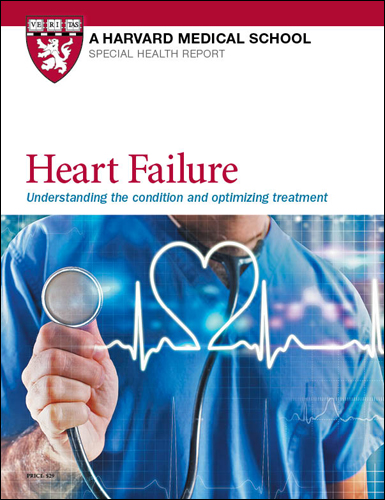Do you need a coronary calcium scan?
This heart test is designed to look for dangerous plaque in the arteries, but it may be helpful only for certain people.

When it comes to monitoring the health of your heart, there are numerous tests your doctor might recommend. One on the list is a coronary artery calcium (CAC) scan, which uses a special type of x-ray to look for signs of plaque in your arteries. This arterial plaque often contains calcium, which is how the scan got its name.
Doctors want to identify people with a lot of this arterial plaque because it raises the risk of heart-related problems. Plaque can create a blockage that cuts off blood flow, causing a heart attack or other problems.
While a CAC scan can be a valuable tool in detecting people at higher risk of heart problems from plaque buildup, this test isn't right for everyone, says Dr. Ariane CoCo Fraiche, a cardiologist at Harvard-affiliated Beth Israel Deaconess Medical Center. It's typically most useful for people who don't yet have symptoms of heart disease, but do have some risk factors. If your doctor is on the fence about how aggressively to treat you based on these risk factors, a CAC scan may help her or him determine the most appropriate treatment plan.
"The goal of the CAC score is to go beyond just traditional clinical risk factors to identify patients who are most likely to derive benefit from preventive therapies such as cholesterol-lowering medications," says Dr. Fraiche. "A CAC score may add helpful information to promote shared decision making in these situations."
The test can also encourage patients to take their own health more seriously, she says. "If a patient is hesitant to start a medication or make lifestyle changes, an abnormal CAC score may provide motivation to do so," says Dr. Fraiche.
On the other hand, if the calcium scan shows that the arteries are clear, everyone might feel more comfortable taking a more conservative approach to treatment.
Weighing the pros and cons
In some instances, however, a CAC scan will add little to the equation.
"A CAC score is less useful when a patient is at very low or high risk for heart disease because the score will not change management recommendations or may lead to unnecessary testing," she says.
This might be the case for a 62-year-old woman with a family history of early coronary artery disease who already has concerning symptoms. "I would pursue other testing, such as a stress test or assessment of coronary anatomy, rather than a CAC scan," says Dr. Fraiche.
The test would also not be useful in a 57-year-old woman with diabetes and high cholesterol, but no symptoms of heart disease, she says. "For this patient, guidelines would call for a statin to improve cardiovascular risk, so the test would be less likely to provide added value to her traditional risk factors," she says.
If your doctor recommends a CAC scan, there are some pros and cons to consider, says Dr. Fraiche.
On the positive side, these scans are
- readily available
- easy to perform.
Among the cons are
- radiation exposure (although it's a relatively low level)
- cost (you may face out-of-pocket expenses depending on your insurance).
Keep in mind that your doctor may see something on your scan that may lead to additional tests, either for heart-related issues or something unrelated but concerning. Both scenarios may lead to additional hassles and costs, sometimes unnecessarily.
Study sheds additional light on who should get CAC scansA study published in October 2021 in JAMA Cardiology may help doctors decide who will benefit most from coronary artery calcium (CAC) scans. "This study is getting a lot of attention because it highlights limitations of CAC scores," says Dr. Ariane CoCo Fraiche, a cardiologist at Harvard-affiliated Beth Israel Deaconess Medical Center. The study looked at more than 20,000 people who had symptoms related to arterial blockages. A large number of them got a score of 0 on a CAC scan despite the fact that they already had plaque-related obstructions in their arteries. This was particularly true in people under age 40. More than half (58%) scored 0 on a CAC scan, compared with 5% of people ages 70 and older. This study showed that CAC scanning is not necessarily an accurate gauge of risk in younger people and in those with symptoms of artery obstruction, notes Dr. Fraiche. CAC scores can lead to inappropriately reassuring results in this population since calcium may not get deposited into potentially dangerous plaques. "If I am worried about coronary artery disease in any patient with concerning symptoms, I would consider a different diagnostic test," says Dr. Fraiche. |
Understanding your results
If you do undergo a CAC scan, you should review your results with your doctor, who can help you understand how the findings relate to your personal risk factors. Typically, scans are graded on a scale as follows:
- 0 (no plaque)
- 1 to 99 (mild disease)
- 100 to 399 (moderate disease)
- 400 or higher (severe disease).
Unless your calcium score is 0, your physician may want to talk about lifestyle modifications and medication to reduce cardiovascular risk, says Dr. Fraiche.
However, an abnormal score does not necessarily mean that you need more heart testing, as long as you don't have symptoms.
"Rather, it can be used to guide preventive therapies," she says.
Your score is just one of several factors to consider. One thing to bear in mind is that in women, a lower score may still carry additional risk. A woman can have the same score as a man, but have a higher risk due to sex differences in atherosclerotic plaque, says Dr. Fraiche.
"The distribution of the calcium may also influence risk," she says.
Ultimately, measuring calcium in the coronary arteries can be a very helpful tool for certain patients who have an intermediate or uncertain risk for heart disease.
"If you are concerned about your risk of heart disease or weighing pros and cons of preventive therapies, I recommend talking to your physician about the potential role of a calcium score," says Dr. Fraiche.
Image: © Fly View Productions/Getty Images
About the Author

Kelly Bilodeau, Former Executive Editor, Harvard Women's Health Watch
Disclaimer:
As a service to our readers, Harvard Health Publishing provides access to our library of archived content. Please note the date of last review or update on all articles.
No content on this site, regardless of date, should ever be used as a substitute for direct medical advice from your doctor or other qualified clinician.
















